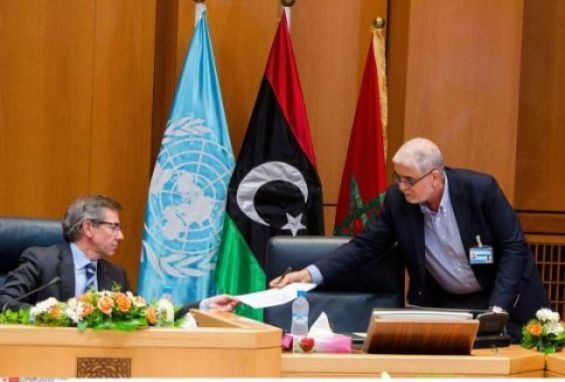The United Nations is committed to the Libyan solution, defended by Morocco. A position confirmed Thursday, August 27, in Rabat by the acting head of the UN mission in Libya Stéphanie Williams who met Morocco’s Foreign Affairs Minister Nasser Bourita.
«The Libyan crisis has been internationalized and it is now time for it to be an inter-Libyan issue through a dialogue away from any foreign influence», she pleaded. The UN official thus spoke in favor of an «inclusive inter-Libyan dialogue».
For his part, the Moroccan Foreign Minister reiterated Morocco's rejection of all foreign interference in this Maghreb country, pleading «for a political solution» between the factions that have been torn apart since the fall of the Gaddafi regime in September 2011.
The Minister took the opportunity to recall that on this issue, the Kingdom has for years been keen to act «under the umbrella of the United Nations», reaffirming Morocco's sincere desire to «help the Libyan brothers and support the efforts of the United Nations».

Morocco under the UN umbrella
Stéphanie Williams' visit to Rabat thus confirms the role played by Morocco in the Libyan crisis. Last week, the United Nations High Commissioner for Human Rights, Michelle Bachelet, appointed Mohamed Aujjar, the former justice minister, as chairman of the independent fact-finding mission on Libya. A designation made possible thanks to the membership of the United States and the greenlight of other influential international players on this issue.
The talks between Williams and Nasser Bourita could pave the way for a resumption of dialogue between representatives of the West and the East in Morocco. On August 19, Khaled Al Mechri, president of the High Council of State, said he was prepared to meet Saleh Aguila, president of the Libyan Parliament (East) in Morocco.
«We trust the Moroccan leaders who want to reach a solution and not defend the interests of one party at the expense of the other. Morocco has already hosted the negotiations which led to the conclusion of the Skhirat agreement in 2015», he told in Medi1 TV. An announcement followed, the next day, by the ceasefire proclaimed by the two rival factions.




 chargement...
chargement...











